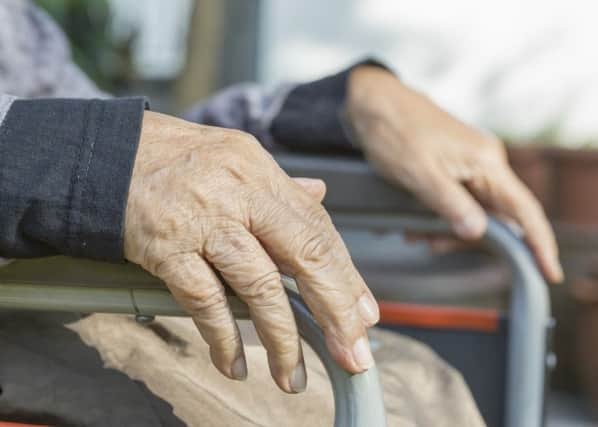'˜Fountain of youth' pill could be on its way


The pill is based on a blend of 30 natural vitamins and minerals and will be taken as a dietary supplement.
The latest of a series of experiments on mice was so successful human trials on the ‘fountain of youth’ are expected to begin within two years.
Advertisement
Hide AdAdvertisement
Hide AdThe lab rodents had widespread loss of more than half their brain cells, severely impacting multiple regions of the brain by one year of age - the human equivalent of severe Alzheimer’s disease.
But after being fed the supplement on small pieces of bagel each day over the course of several months, their improvement was remarkable.
Over time, it completely eliminated the severe brain cell loss and abolished cognitive decline.
In addition to looking at the major markers of ageing, the supplement also boosted the animals’ vision, balance and motor activity.
Advertisement
Hide AdAdvertisement
Hide AdIt even improved their sense of smell, the loss of which is often associated with neurological disease.
Scientists hope the cocktail of nutrients may prevent and even reverse neuron loss in patients - halting catastrophic conditions such as Alzheimer’s, motor neurone disease and Parkinson’s.
Professor Jennifer Lemon, of McMaster University, Hamilton, Ontario, said: “The findings are dramatic. Our hope is this supplement could offset some very serious illnesses and ultimately improve quality of life.”
The formula, which contains common ingredients such as vitamins B, C and D, folic acid, green tea extract, cod liver oil and other vitamins and minerals, was first designed by her biology department in 2000.
Advertisement
Hide AdAdvertisement
Hide AdThe idea is over-the-counter supplements might be able to stave off old age by turning ingredients commonly available in shops into an all in one ‘fountain of youth’.
Prof Lemon said: “The research suggests there is tremendous potential with this supplement to help people who are suffering from some catastrophic neurological diseases.
“We know this because mice experience the same basic cell mechanisms that contribute to neuro-degeneration that humans do. All species, in fact. There is a commonality among us all.”
By the time regular mice reach 22 months of age, the equivalent of 70 or 80 in human years. they experience a 50 per cent decline in movement and become hunchbacked, arthritic and thin.
Advertisement
Hide AdAdvertisement
Hide AdIn a previous study, mice on the daily supplement carried on in their cages as if they were still teenagers - or at least 20-somethings - rather than being frail and elderly.
The next step is to test the supplement on humans to check for any side effects. This is likely to happen within the next two years, and will first be given to those already suffering from neuro-degenerative diseases.
The study is published online in the journal Environmental and Molecular Mutagenesis.